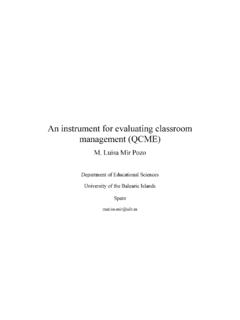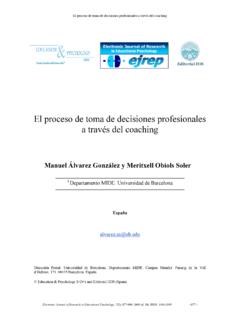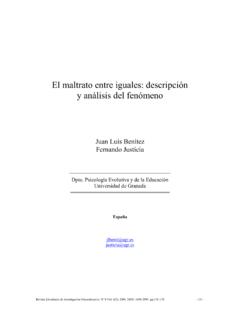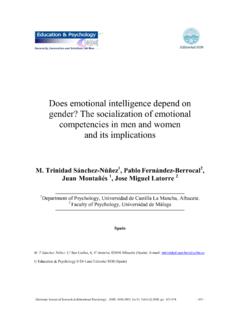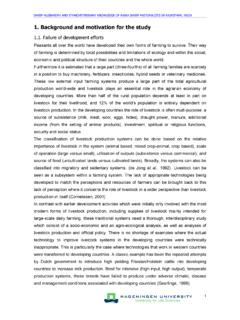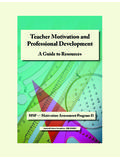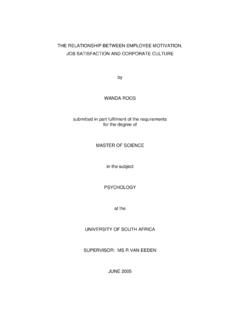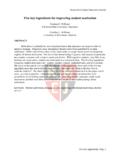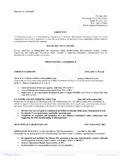Transcription of Personal, family, and academic factors affecting …
1 personal , family , and academic factors affecting low achievement in secondary school Antonia Lozano D az Teacher, Psychopegagogy expert Almer a, SPAIN Electronic Journal of Research in Educational Psychology and Psychopedagogy, 1 (1), 43-66. ISSN: 1696-2095 - 44 - personal , family , and academic factors affecting low achievement in secondary school ABSTRACT Introduction. Understanding different parameters which contribute directly to low achievement is a frequent topic, especially when international surveys such as the one carried out by the OEDC show that 26% of secondary students in Spain (6% above the average of the all other countries surveyed) do not attain the corresponding diploma. The present study aims to establish relationships between personal , family and academic factors that account for school failure, as well as determine how these factors influence each other.
2 Method. The sample was composed of a total of 1178 students from four secondary schools in Almeria city (Spain), including the four years of Mandatory Secondary Education. In order to collect the data two measuring instruments were used: an adaptaion of the TAMAI questionnaire and a measurement of school failure. Results. The results of this survey make clear the direct influence of variables such as parents' academic level, gender, motivation, relationships between peers, and others. Discussion. The hypotheses were fulfilled differentially, showing the selective predictive power of the different contextual variables ( family and school related) in accounting for school failure in students of Secondary Education. Such results offer us very relevant information for better understanding and for decision-making with an aim towards prevention of school failure during this educational stage.
3 KEYWORDS: school failure, secondary education, academic motivation, academic environmentElectronic Journal of Research in Educational Psychology and Psychopedagogy, 1 (1), 43-66. ISSN: 1696-2095 - 45 - Antonia Lozano D az INTRODUCTION Numerous studies, such as those carried out by Fullana Noel (1995) and Montero Marcos (1990) have sought to understand the factors which account for low achievement. Studies seeking to identify what determines academic failure frequently appear as a reaction to conditions of change, such as plans for educational reform, or in response to critical situations: the OEDC study (2001) states that 26% of Spanish students in ESO (mandatory secondary education) fail to obtain the corresponding diploma. The very concept of academic failure varies in its definition. Rodr guez Castellanos (1986) considers academic failure as the situation in which the subject does not attain the expected achievement according to his or her abilities, resulting in an altered personality which affects all other aspects of life.
4 Similarly, Tapia (2002) notes that, while the current Educational System perceives that the student fails if he or she does not pass, more appropriate for determining academic failure is whether the student performs below his or her potential. In general, the various studies which attempt to explain academic failure do so beginning with the three elements that intervene in education: parents ( family causal factors ), teachers ( academic causal factors ), and students ( personal causal factors ). Among personal variables most studied are motivation and self-concept. Motivation is considered to be the element that initiates the subject's own involvement in learning: when a student is strongly motivated, all his effort and personality are directed toward the achievement of a specific goal, thus bringing to bear all his or her resources.
5 According to Gonz lez (1997), a consensus exists among the diverse motivational theories and approaches inasmuch as they conceptualize motivation in terms of conscious beliefs and values. In the arena of motivation there exist all kind of opinions and results, some research claims that motivation maintains a circular relationship with the level of information processing and this in turn with performance (N ez, Gonz lez-Pienda, Garc a, Gonz lez-Pumariega, Roces, lvarez & Gonz lez, 1998). In other research motivation is found to be one of the elements that most distinguishes those required to repeat a schoolyear from those being promoted (Burgaleta, Valverde & Fern ndez Garrido, 1988), the repeaters being those who are most bored in class (Campuzano, 2001). Other authors have found that subjects themselves attribute low performance to low ability and to luck (Valle Arias et al, 1999), and an improvement in Electronic Journal of Research in Educational Psychology and Psychopedagogy, 1 (1), 43-66.
6 ISSN: 1696-2095 - 46 - personal , family , and academic factors affecting low achievement in secondary school performance to motivation (task goal orientation), to self'-regulating behaviors, and to competence as a function of task characteristics (Slater, 2002). In recent research positive correlations were found between the value given to the task and the perceptions of auto-efficacy and performance (Yi Chia, 2002). However, in a recent theoretical review, De la Fuente (2002) shows how there has been a branching off toward the study of academic goals, to the detriment of those of a social nature, even though these have been shown to be especially important in the most disadvantaged social contexts. Self-concept results from the subject's internalization of his social image. It is developed from different interactions with the social context and agents, great importance assigned to acceptance or rejectance from others, especially significant others.
7 Marsh, Parker and Smith (1983) propose a hierarchical and multifaceted model of self-concept, in which there exists one general factor and several specific ones, the latter including academic self-concept. For S nchez (2000), academic self-concept is at the base of future school success or failure, having been formed starting in Early Childhood Education from peer contact and teacher attitude and expectations. One interesting study indicates positive self-concept as one risk-reducing factor against academic failure in the case of unfavorable family situations (Fullana Noel, 1995). Studies such as that by Castej n and P rez (1998), using a causal-explicative model, emphasize that academic self-concept directly influences the global performance of the pupil. Other research finds that the greater the pupil's self-concept, more learning strategies will he use, facilitating deep information processing (N ez P rez et al.)
8 , 1998). In other studies self-concept was found to better predict performance than variables such as age or student gender (Edwards, 2002). Zsolnai (2002) informed that self-concept influences performance indirectly by means of its influence on intrinsic motivation. In other research it was shown, by means of an analysis of structural equations, how self-concept related causally to performance, but not vice-versa (Gonz lez Pienda et al., 2002). Another group of performance-determining factors are the social/ family factors . The educational condition attributed to the family is beyond all doubt or discussion, as there is an ever-increasing awareness of the importance of the parents' role in the progress and educational development of their children. Schiefelbaum and Simmons (cited by Adell, 2002, p. 91) consider family background the most important and most weighty factor in determining the academic performance attained by the student.
9 Among family factors of greatest influence are social class variables and the educational and family environment. Electronic Journal of Research in Educational Psychology and Psychopedagogy, 1 (1), 43-66. ISSN: 1696-2095 - 47 - Antonia Lozano D az With regard to social class, relevant research tells us that one's results and expectations for the future are better the higher one belongs on the social ladder. One of the latest studies carried out on performance in secondary school in Spain (Marchesi and Mart n, 2002), informed that upper-class students show a better use of metacognitive strategies than those of a lower social class. The influence of social class is mediated by cultural level, which in turn determines family expectations, values and attitudes regarding education. In other words, motivation to achieve depends more on the parents' level of learning than on their level of income (Llorente Guardione, 1990).
10 Castej n and P rez (1998) find that the child's perception of family support directly affects performance, while the mother's level of studies does so indirectly. Other research indicates that the most influential family components on performance are not socio-cultural or economic, but rather those pertaining to the affective or psychological dimension; that is, although good academic preparation in the parents, especially the mother, and a positive cultural environment, favor scholastic performance, it is affective and relational variables which most stand out as factors in performance. The influence of the family educational climate is defined by the amount and the style of help that children receive from the family ; this is determined by elements of the family context, like the dynamic of communication and affective relationships, attitudes towards values, expectations, etc.
